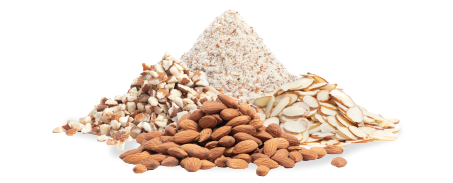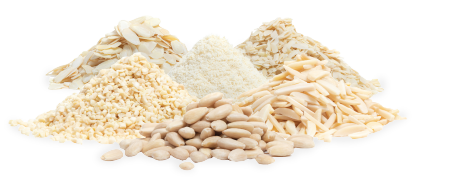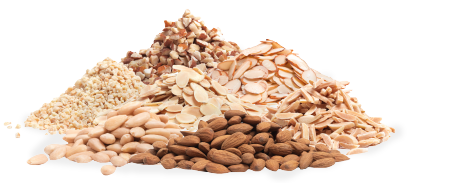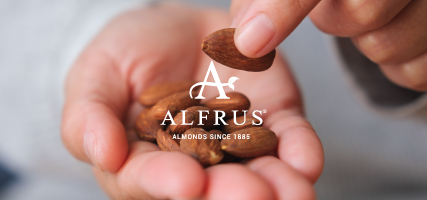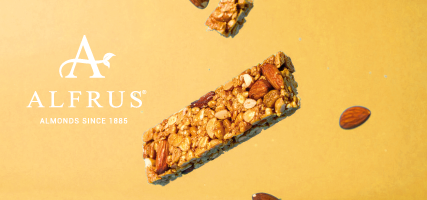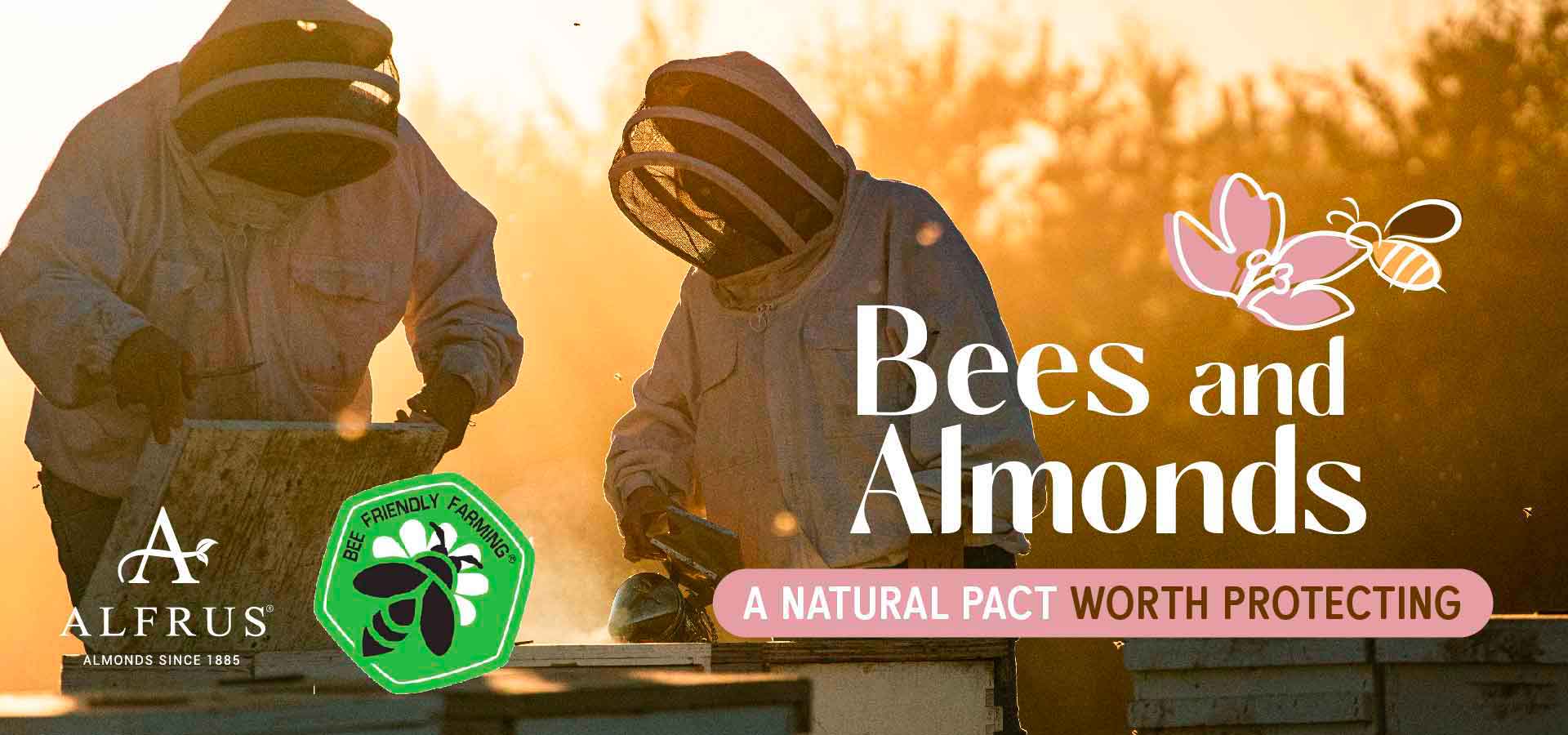
Why is promoting the health of pollinators important for almonds cultivation?
Bees and almonds: a natural pact worth protecting.
The bond between bees and almonds is ancestral and it has been going on for centuries, since not only almond trees need honey bees for pollination, but the nutrient coming from their pollen is also the first source of food for such insects.
Therefore, supporting the health of these small pollinators, by creating the best conditions for their life cycle is the only way to keep growing and processing quality almonds.
Every year, between February and March, when the almonds trees bloom, bees forage for pollen and nectar in the almond orchard. Almond pollen is important because it provides bees with all ten of the amino acids their diet requires. Moreover, almond blossom nectar contains a naturally occuring compound, amygdalin, which reduces viruses and gut parasites attacking bees. As a matter of fact, after their visit during almond trees bloom, honey bees hives turn out to be stronger.
And it is in California, where our almonds come from, that the biggest pollination event in the world takes place.
WHY SHOULD BEES BE ABSOLUTELY PROTECTED?
When we talk about bees, we are talking about tireless workers. The future of the planet depends on them.
Without their contribution many plants (and their fruits) would risk extinction. But there is more. These insects provide every day a service of ecosystem regulation and preservation of biodiversity itself.
Bees are also very important for assessing the state of health of a specific environment, as they can intercept any pollutants. For this reason, an environment where bees thrive is a healthy environment.
Unfortunately, to this day, many factors have led to a concerning decline in bees health. First of all, the over-exploitation coming from the intensive agriculture, carried out by irresponsible productions, contributed to their fatigue and often to their sacrifice.
Therefore, today, these insects face increasing and constant stress, due to many causes that threaten their survival and well-being, including:
– Climate factors;
– Loss of suitable habitats;
– Diseases;
– Toxic effects resulting from the misuse of pesticides.
The widespread disappearance of honey bees has created an obstacle for almond industry and Californian growers, placing production at risk. Therefore, beekeepers have to work hard to keep the existing hives healthy.
Alfrus has always felt part of an ecosystem that must be preserved. For this reason, we rely on Pomona Farming as supplier of our almonds. Our raw material comes from one of the most environmentally and bee-friendly crops.
Our Californian almond growers are committed to collaborating with universities and researchers, investing in education and funding bee health research, in order to address this challenge.
POMONA FARMING’S BEE-FRIENDLY PRACTICES
In order to create an environment where pollinators can thrive and live healthy, Pomona Farming’s Californian farmers, whom we rely on as suppliers, have implemented many practices, including:
1) Around 950 miles of bee-friendly hedge rows planted, to ensure adequate foraging for the insects.
2) 750 hives hosted in the three honeybee “sanctuaries”, where they can rest for the winter.
3) Over 3.300 acres dedicated to forage for bees and other pollinators, with more than 40 different varieties of plants that bees love.
4) Bee-friendly practices, to prevent colony loss, including the reduction of pesticides and herbicides usages.
5) Important partnerships with the most expert beekeepers, professionals able to ensure the health of hives, minimizing travels throughout California and offering them long periods of rest, shelter and hydration, during the flowering of almond trees.
6) External audits for the management practices of beekeepers, facilitating controls and remaining in constant communication and updating, to always provide the best possible habitat for bees.
Ours is the fruit of an ethical work.
Since the beginning of our story, we have been at the forefront of ecosystem protection.
This is why our raw material only comes from the crops obtained through Pomona Farming’s sustainable agriculture, in total respect of the cycles and balances of nature. All this while preserving the valuable work of pollinators, without which we would not have our greatest resource: almonds.
31 March 2023
